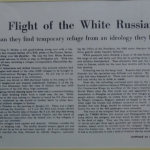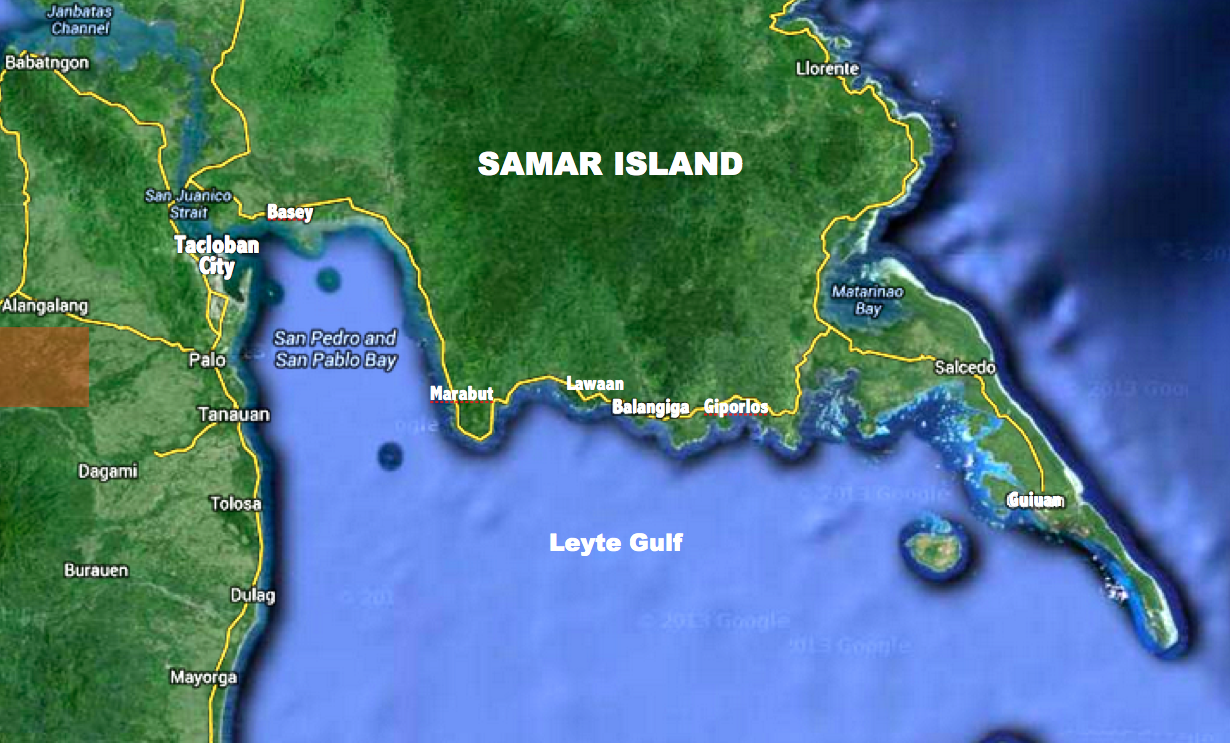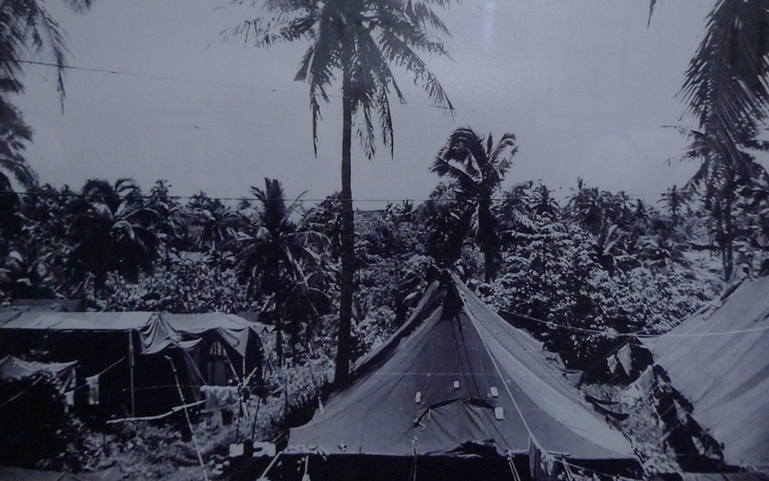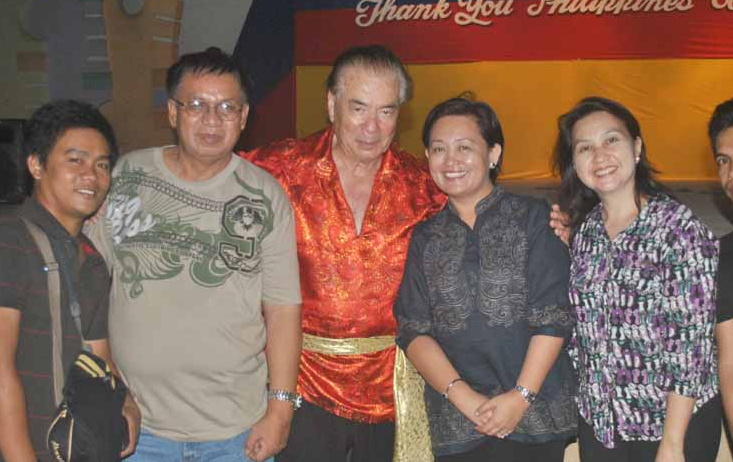Devastated Town of Guiuan, Samar, Once Played a Key Role in a Cold War Drama
Typhoon Haiyan’s devastation of the the Eastern Visayas islands of Samar and Leyte has cast a spotlight on an area that played a significant role in World War II when American Naval Forces overwhelmed the Japanese Navy in the Battle of Leyte Gulf, and returned General Douglas MacArthur to the Philippines in what would become known as the Leyte Landings. (See this post for more on that history.)
But Guiuan, the town that absorbed Typhoon Haiyan’s initial punch and emerged with epic devastation, played a role in a Cold War drama that has been all but forgotten — but which is well worth remembering.
The year was 1949. The Chinese Red Army was advancing to the Northern China in a push to take over the entire country and transform it into the People’s Republic of China — the communist country we know today. Living in northern China were 5,000 White Russians who had supported the Tsar in the 1917 revolution and had emigrated to China in search of a secure and tranquil existence. Now in the path of the advancing Red Chinese Army, the White Russian colony became the subject of an intense international drama.
The United Nations’ International Refugee Organization issued an appeal in an attempt to find a country who could take in the White Russian refugees. The only country to reply? The Philippines.
Some of the refugees arrived in the Philippines by air, Using the airstrip in Guiuan that the Americans had built as part of the campaign to retake the Philippines. Many others arrived in aging, dilapidated boats, many of them crewed by former Chinese prisoners. Led by by John Maximovitch, the Orthodox Archbishop of Shanghai. They were taken to the island of Tubabao, located a couple of hundred metres from the coast of Guiuan.
Many stayed for as long as two years on Tubabao. Over time, various nations stepped forward to accept the refugees on a permanent basis, and as a result the community was splintered, with members ending up in the US, Australia, and South America.
Photo of the White Russian Camp
RETURNING THE FAVOR TO THE PHILIPPINES
As Guiuan’s destruction became known in the aftermath of Typhoon Haiyan, Russian communities around the world, mindful of the history, began to hold fund-raising events. A Russian-American folksinger, Nikolai Massenkoff, who was ten when he and his mother were evacuated to Tubaba hn Francisco. “The people of the Philippines were warm and kind and gentle. They were the only place that could offer the refugees a place at short notice,” he recalled. “The whole Russian community has been deeply saddened by the tragic events.” Massenkoff returned to the Philippines in 2011 for a concert in Guiuan.
In Massenkoff’s repetoire (to the tune of God Bless America)
God bless the Philippines,
The people that we love,
You are the jewel of the orient,
The Russians will remember your generosity,
Your kindness,
Your compassion,
Your hospitality,
Your grace and bright face,
We are grateful to you my friend.”
For more reading on this:
A Forgotten Episode of History Links Guiuan, and Russia
The Story of White Russians in Tubabao
The White Russians in Guiuan History
And thanks to Gil Gozum for the tip on this!
Year of the Spy Book Trailer
Above is the Year of the Spy Book Trailer — for my upcoming non-fiction book about espionage upheavals on the streets of Moscow in 1985.
Below is a “trailer” showcasing the writing and video services I provide to clients.
Michael Sellers — Writing and Video Services
My eBook — Just released Dec 5, 2012
EBook You don't need a Kindle or iPad -- Download Adobe Digital Editions for Free, then read the .mobi (Kindle Format) or .epub (Nook, iPad Format) digital book on your computer. Or order the PDF which is formatted exactly like the print book.Recent Posts
- Arsha Sellers — Today I’m One Big Step Closer to Becoming a Real Forever Dad
- Meet Abby Sellers and Arshavin Sellers — My Wife, My Son, My Inspiration Every Day
- What the Mueller Report Actually Says
- Remembering James Blount, an American Who “Got” the Philippines in 1901
- America the Beautiful? You Mean America the Pitiful. I Am Ashamed








